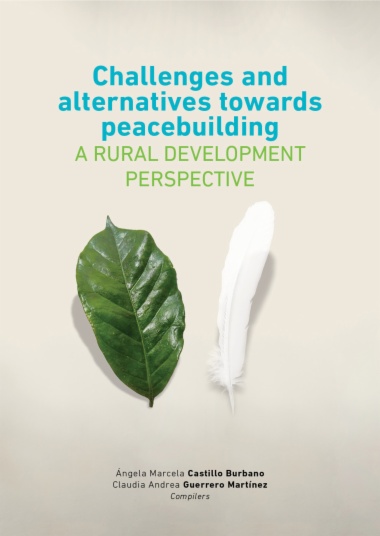Rural development and peacebuilding in Colombia have been highly prioritized by higher education institutions since the signing of the Peace Agreement between the National Government and the FARC-EP. This has resulted in the need to further analyze rural strategies that contribute towards a better life for the population of territories where armed conflict is coming to an end, whilst understanding the pressing uncertainty that this process implies; on the one hand, for the urgency of generating rapid and concrete responses to social justice and equity, and on the other, because fulfilling the agreement guarantees scenarios of non-repetition of the war in the country.
- Cover
- Title page
- Copyright page
- Contents
- Acknowledgments
- Prologue
- Contextualization of the collective work
- Introduction
- Part 1. Peacebuilding and human rights
- Chapter I. The challenges of building a stable and lasting peace in Colombia
- Chapter II. Dynamics of conflict and post-agreement in the Nariñense territory
- Chapter III. A sociodemographic view and a look at health conditions prior to the implementation of peace agreements in the municipalities of Leiva, Policarpa and Los Andes in Nariño
- Part 2. Education for rural development
- Chapter IV. Education and pedagogy when faced with the challenges of rural Colombia
- Chapter V. Challenges and opportunities of rural education in Nariño in the post-conflict context
- Chapter VI. Strategies for student retention and wellbeing using virtual higher education as a tool for inclusion in the cases of Leiva, Policarpa and Los Andes - Sotomayor
- Part 3. Economic models of rural development and local productive dynamics
- Chapter XI. The impact of good practices in coffee production as an alternative for rural development in the municipalities of Leiva, Policarpa and Los Andes
- Chapter VII. A look at rural development in Latin America: the agrarian question and the established economic models
- Chapter VIII. Development and the solidarity economy: reflections on the peace agreement in Colombia
- Chapter IX. Rural associativity and agricultural producers
- Chapter X. Social responsibility: a strategy for rural strengthening
- General conclusions of the study
- List of Abbreviations
- Researchers

